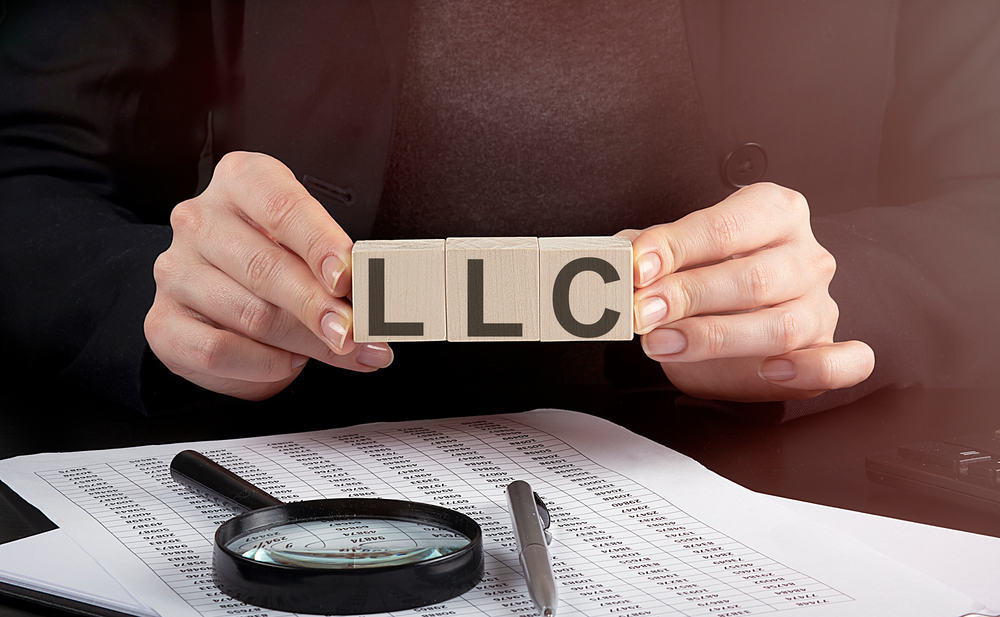While they might seem similar at first glance, LLCs and corporations share quite a few differences that make them two separate business entities. They are similar in terms of providing limited liability for their owners, but they differ in some fundamental ways, such as their structure and taxation policies.
In this article, we’ll answer the “What is the difference between an LLC and a corporation” question, which will be beneficial for anyone who is debating between these two structures for their business or is curious to learn all about their differences.
We’ll start by defining what LLCs and corporations are, respectively, and lay out some of their most important benefits and drawbacks. Then we will continue to elaborate on some of the differences between these two entities in terms of management, taxation, structure, and ownership transfer. At the end of our article, you’ll find an FAQ section that goes over some commonly asked questions regarding LLCs and corporations.
Without further ado, it’s time to start off our article by defining what an LLC is.
What Is an LLC?

An LLC, or a Limited Liability Company, is a business entity that protects its members and owners from any liability concerning the business. In other words, their personal assets remain protected regardless of any claims, lawsuits, or debts that the business is going through. There are various different types of LLCs including single-member LLCs, multiple-member LLCs, domestic LLCs, series LLCs, and anonymous LLCs.
As a business entity, an LLC is quite similar to a corporation, but there are some bigger differences which we will explore below.
Some Benefits of Forming an LLC
Now that you have a clearer idea of what constitutes an LLC, let’s see what some of the benefits of starting an LLC are other than limited liability.
LLCs Are More Straightforward and Cheaper to Form
Unlike some more complex business structures like corporations, LLCs are quite simple and easy to form. Not to mention, they don’t cost as much, and they don’t require extortionate fees to maintain.
Flexible Management
Owners of LLCs have many different management options that provide much-needed flexibility. For instance, they can decide whether they want the members to manage the LLC or appoint managers.
They Are Seen as More Credible
Due to their structure, LLCs are seen as more credible than other entities like sole proprietorships and partnerships. If you decide to form an LLC, you will be seen as more credible by your potential customers and investors, which can contribute extensively to the growth of your business.
Less Paperwork
Since LLCs aren’t as hard to maintain as corporations, they automatically come with less paperwork. For instance, unlike corporations, LLCs aren’t obligated to hold shareholder meetings. Having less paperwork to deal with plays a big role in why some business owners decide to opt for an LLC instead of a corporation.
Some Drawbacks of Forming an LLC
Naturally, just like with any business structure, there are also some drawbacks to consider if you’re interested in forming an LLC.
Difficult Transfer of Ownership

Because LLCs don’t operate with stock, ownership transfer can be quite a hassle. You will require the consent of every member/owner to proceed with a membership transfer. If you can’t come to an agreement with your fellow members, then you risk certain complications and being obliged to hire legal help, which can be quite time-consuming and costly.
Drawbacks Regarding Taxes
While LLCs qualify for pass-through taxation, members are responsible for covering a large share of their taxes. This occurs because the IRS considers LLC members as self-employed, so they have to pay Medicaid and Social Security taxes. If you wish to do so, you can file a form to the IRS and have your LLC be taxed as an S corp.
What Is a Corporation?
A corporation is a complex legal entity that’s distinct from its owners. Just like LLCs, corporations provide limited liability to their shareholders, so in case the business undergoes a lawsuit or a claim, the shareholders won’t be held responsible. Shareholders get a share of the profits through dividends and stocks.
There are multiple types of corporations:
- Sole proprietorships
- Partnerships
- LLCs
- S corporations
- C corporations
- Non-profit corporations
Some Benefits of Forming a Corporation
Corporations are some of the most popular business structures, so it’s a safe assumption that they come with many benefits. We’ll explore some of their most important benefits below.
Easy Ownership Transfer
Contrary to LLCs, corporations have an incredibly easy ownership transfer. This occurs because, unlike LLCs, they operate with stocks that are easy to divide and sell. A corporation can be owned by individuals or other business entities, but transferring the ownership is easy regardless of who owns the business. If an owner is interested in leaving the corporation, all they have to do is sell their stock – a much easier process than having to make a joint decision, as is the case with LLCs.
Access to More Funds

While LLCs are credible in their own right, corporations typically have better access to funds. Banks prefer giving loans to corporations rather than smaller business entities, and some investors are attracted explicitly to the structure of corporations.
Some Tax Benefits
Unsurprisingly, some types of corporations come with a few tax benefits. For instance, S corporations have the option of splitting the profits, which results in different rates of taxation. In addition, they’re not subjected to Social Security or Medicare taxes. If you’d like to know more about the types of taxes your potential corporation could be subjected to, you can always hire someone to guide you through the process.
Perpetual Life
With sole proprietorships, the lifespan of the business ends as soon as the owner dies or decides to liquidate the business. However, corporations have a seemingly perpetual life because as a business structure, their life isn’t dependent on the owners.
Some Drawbacks of Forming a Corporation
Just like with LLCs, corporations come with a few drawbacks you should be wary of before deciding which structure is better for you.
Long Application Process
In order for your business to become a corporation, you need to file articles of incorporation with the Secretary of State in the state where your business is located. Needless to say, this formation process is quite long since you have to wait for your application to be approved. There’s considerably more paperwork than if you were to form an LLC, which is also something you need to keep in mind.
More Rules and Regulations

Due to the complex nature of corporations, there are more rules and regulations you need to keep track of. Some of these obligations include holding annual meetings and filing annual reports. The rules vary from state to state, so ensure that you’re informed about the particular laws of your state or hire someone to help you out.
Differences in Taxing Between an LLC and a Corporation
Now that we’ve gone over some of the advantages and disadvantages of each business structure, it’s time to explore some of the main ways in which these structures differ.
Taxation is one of the things that separate LLCs from corporations. LLCs qualify for pass-through taxation – the businesses are passed through and the owners report the losses and profit on their individual tax return, not on a corporate level. As we mentioned earlier, some owners are required to pay certain self-employment taxes, depending on the state. If the owners of the LLC want to be taxed differently than the laws that apply to them, they can choose to be taxed as a corporation.
On the other hand, corporations are regarded as completely separate entities. With corporations, the shareholders are taxed on their dividends, while the corporation has to pay taxes for all the profits. Unlike LLCs, corporations have double taxation. It’s one of the main reasons why some entrepreneurs are put off by the thought of forming a corporation.

Not all is bad, however. Owners of corporations can still choose to deduct some of the expenses, such as rent and transportation. This amount adds up over time and can make a significant difference by the end of each year in terms of total earnings.
Differences in Management Between an LLC and a Corporation
Since these are two different legal entities, it comes as no surprise that LLCs and corporations have some differences in terms of management.
Ostensibly, LLCs have a much more flexible business structure and can be managed by either an appointed manager or their owners.
Corporations, on the other hand, have to have a board of directors who are in charge of the business operations and make decisions regarding the future of the business. The shareholders own the corporation, but they’re not involved in the day-to-day decision-making and operations that occur within the business. At the same time, they are the ones who appoint the board of directors, so they ultimately hold all the power.
Differences in Business Ownership Between an LLC and a Corporation
Just like the management differences, LLCs and corporations differ in the way in which the owners/shareholders own the business.
LLC members have equity ownership, while shareholders own shares in the business which can be divided if liquidation occurs or the company is sold.
Differences in Formation Between an LLC and a Corporation
The formation process of LLCs and corporations also differs. You already know that LLCs are much easier and faster to form than corporations, and there’s less paperwork overall.
In order for an LLC to be formed, the owners/members have to file articles of organization. This is a crucial step without which the formation process can’t continue. After the articles have been filed, the owners have to go through a couple more steps, such as creating an operating agreement that details the duties of each owner, what happens in case the business needs to be transferred, and other important information.
Shareholders have a few more steps to complete to form a corporation. For instance, they need to file articles of incorporation and select a board of directors who will oversee all the operations.
Differences in Formalities Between an LLC and a Corporation
We already know that since corporations are a much more complex business entity, they have more formalities and rules that need to be followed. While they share many of the same regulations in terms of forming a business in the first place, they have some differences in what kind of formalities they need to fulfil, especially at a yearly level.
Corporations need to hold an annual meeting for their shareholders. Of course, LLCs don’t have a board of directors, so they’re not obligated to go through this step. Additionally, they have to file an annual report which informs the Secretary of State of any new information regarding the business.
LLCs don’t have as many obligations, they are only required to keep books and have an operating agreement. However, some states require them to file annual reports. Keep in mind that the rules and regulations vary from state to state, so we recommend reading up on them thoroughly before you start the formation process of your business.
How to Decide Between Forming an LLC and a Corporation

If you’re debating whether forming an LLC or a corporation is the right choice for you, here are some things to consider that will help you make the right decision.
Corporations are an amazing choice for bigger businesses that have the potential to expand significantly in the future. They usually attract more investors and customers, so if you have big plans for the future of your business, consider choosing a corporation. At the same time, they require a higher budget to form and maintain, and if you don’t have access to a big budget at the start of your business journey, then consider opting for an LLC.
LLC is a great option for small businesses, however, as a structure, it does pose a threat to the potential growth of the business. On the plus side, LLCs don’t require an enormous budget to from and they are quite easy to operate, making them the perfect option for business owners who don’t have a lot of time to dedicate to their business.
FAQs
Is LLC a Corporation or a Sole Proprietorship?
An LLC is an entirely different structure than a corporation and a sole proprietorship. While they do have some similarities and both LLCs and corporations offer limited liability to their owners, there are some fundamental differences in terms of management, taxation, and structure.
What Is an S Corp?
S corporations are business entities that pass their profits, losses, deductions, and credits entirely to their owners for taxation purposes. Many people opt for S corps because they provide a lot of tax advantages.
Is It Better to Have an LLC or a Corporation?
There isn’t a definite answer to whether it’s better to own an LLC or a corporation. The choice is entirely subjective and it largely depends on what kind of business you have and what your goals and ambitions for your business are. Generally speaking, LLCs are better for those who own smaller businesses and don’t have a large budget at the start to fulfil all the regulations corporations require. On the other hand, corporations are ideal for owners of bigger businesses who have big plans for the future of their business.
Final Thoughts
We hope you enjoyed learning about all the differences between an LLC and a corporation and that now you’re able to decide which business structure would be better suited for your business.
LLCs and corporations have many things in common, which is one of the reasons why some business owners have a hard time deciding between the two. However, they also differ in some important ways, such as their taxation policies and management, so it’s important to consider these differences carefully.
How To Form An LLC In Each State
- Alabama
- Alaska
- Arizona
- Arkansas
- California
- Colorado
- Connecticut
- Delaware
- Florida
- Georgia
- Hawaii
- Idaho
- Illinois
- Indiana
- Iowa
- Kansas
- Kentucky
- Louisiana
- Maine
- Maryland
- Massachusetts
- Michigan
- Minnesota
- Mississippi
- Missouri
- Montana
- Nebraska
- Nevada
- New Hampshire
- New Jersey
- New Mexico
- New York
- North Carolina
- North Dakota
- Ohio
- Oklahoma
- Oregon
- Pennsylvania
- Rhode Island
- South Carolina
- South Dakota
- Tennessee
- Texas
- Utah
- Vermont
- Virginia
- Washington
- West Virginia
- Wisconsin
- Wyoming
- U.S. Virgin Islands
